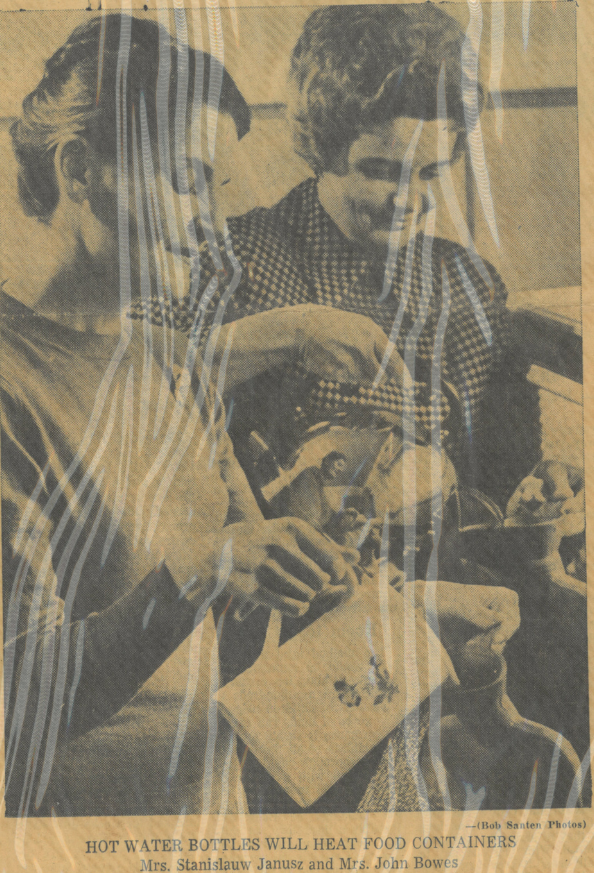In the winter of 1967, Elizabeth Janusz and Wilha Bowes stood in a small kitchen, steam rising around them as they carefully poured hot water into bottles. It was a cold day, and they knew that without their extra effort, the meals they had prepared wouldn’t stay warm by the time they reached the people who needed them.
Elizabeth, the founder of Meals on Wheels in Peterborough, and Wilha, her friend and neighbor, had spent countless hours working out every detail of the fledgling program. The volunteers didn’t have insulated carriers or thermal containers back then—just determination and a deep sense of care. So, they improvised. They sewed pouches specifically designed to hold the hot water bottles, tucking them in alongside each meal to keep it warm during delivery. It was a simple, handmade solution, but it worked. And more than that, it showed how deeply these volunteers cared—not just about providing food, but about ensuring every meal was the best it could be.
Meals on Wheels was never just about nutrition; it was about human connection and kindness in action. That spirit was evident when volunteers received an urgent call about an elderly woman who had been struck by a car. Her husband, frail and dependent on her for daily tasks, was left stranded and unable to care for himself. Within minutes of hearing the news, Meals on Wheels volunteers sprang into action.
When they arrived at his home, they found the man exhausted, his face streaked with tears. He had been awake all night, terrified for his wife and unsure of what to do. The volunteers reassured him, arranged for immediate transportation to the hospital, and guided him through meetings with the medical staff. They sat with him in the cafeteria, making sure he ate a proper meal. Before leaving, they signed him up for Meals on Wheels, ensuring he wouldn’t go hungry in the coming days. They also sent a care package to his wife and continued visiting him until she was well enough to return home.
Today, Meals on Wheels benefits from modern food delivery systems, but the heart of the program remains the same. Whether in 1967 or today, the volunteers behind the meals—creative, compassionate, and committed—are what make all the difference.









